
Knowledge platform: Sports Policy Unit
Analysing, understanding and contributing to the governance, policy and politics of the sports industry, through original research and teaching.
About
About our research
We bring together the largest concentration of scholars working on the social science of sport in the UK.
The unit was established as part of Manchester Met’s investment in the academic study of sport, which includes the multi-million pound Institute of Sport.
Our members analyse and research the key questions relating to national and international sport governance, policy, and politics.
We work with a wide range of sporting organisations and brands around the world, and have international research networks with other academic institutions.
Our expertise includes:
- economic, sociocultural, environmental, and health impact of sport
- sport, human rights, and wellbeing
- national and international sport governance, policy, and politics
Our work attracts funding from the major UK research councils, including the Leverhulme Trust, the British Academy and the Economic and Social Research Council. We also work with international funders such as the German Academic Exchange Service Council, the International Olympic Committee’s Olympic Studies Centre, and the Union of European Football Associations (UEFA).
We offer two undergraduate courses – Sports Business Management and Sports Marketing Management – and a postgraduate degree in Sport Business, Management and Policy.
Our expertise in sport research and links with leading sporting organisations and brands make us a popular choice for research students studying for a doctoral degree.
The Editor-in-Chief of the International Journal of Sport Policy and Politics is one of our members, along with the journal’s editorial assistant.
Our expertise
-
Economic, sociocultural, environmental, and health impact of sport
Sport makes a large contribution to society - from supporting physical and mental wellbeing to driving economic and sociocultural development. It can also help create greater social awareness, including of crucial sustainability and environmental challenges.
But while sport offers wide-ranging benefits, sporting bodies often find it difficult to effectively measure and assess the positive impact they have.
This becomes important as organisations are increasingly expected to demonstrate their positive impact to obtain a ‘social license’ to operate. For many sporting bodies and events, this involves building and sustaining broad stakeholder support, including attracting investment from the public sector and sponsors.
Our staff are specialists in multidimensional impact assessment, able to design robust research, support organisations in evidence gathering and make actionable recommendations.
We have carried out a significant number of impact-related studies, both internationally and in the UK - for example The Rugby League Dividend, which assessed the economic, sociocultural and health impact of the sport in England.
-
Sport, human rights, and wellbeing
UNESCO described access to sport as “a fundamental human right for all” in 1978.
Since then there has been increasing recognition that sporting organisations, programmes, and events must be accessible and inclusive to all. Failure to do so denies people opportunities to improve their physical and mental wellbeing, develop enriching social relationships, and foster a sense of belonging.
If properly governed and structured, sport may serve to increase the awareness of — and support for — human rights in the broader society.
We bring together expertise in sport management and policy, consumer psychology, sociology, economics, and laws to probe how:
access to sport can be increased for those from traditionally underserved groups
sport can be managed to optimise its contributions to health and wellbeing
the governance and operating structures of sport should be reformed to ensure compliance with and promote universal principles of human rights
-
National and international sport governance, policy, and politics
While sport has been an integral part of human society for centuries, it is only since the 1980s that it has truly caught the attention of governments across the world.
Since then, official involvement in all levels of sport has increased incrementally - it is viewed as a panacea for health problems, a useful diversion from politics and everyday life, and a useful tool for enhancing a nation’s image, prestige and soft power.
Given this growing importance and politicisation, we must understand how sport is governed and by whom. Our research examines how policies are made, who makes the key decisions that affect grass-roots, elite sport and sports mega-events, and how and why sport is used for political gain.
Selected projects
-
Key publications
Inoue, Y, Lock, D, Gillooly, L, Shipway, R and Swanson, S (2021) The organizational identification and well-being framework: theorizing about how sport organizations contribute to crisis response and recovery Sport Management Review. pp1-30
Inoue, Y, Lock, D, Sato, M and Funk, DC (2021) Psychological processes connecting team identification and social well-being for middle-aged and older adults: moderated mediation of subjective and objective on-field performance Sport Management Review. pp1-27
Kim, HM and Grix, J (2021) Implementing a Sustainability Legacy Strategy: A Case Study of Pyeongchang 2018 Winter Olympic Games Sustainability, 13, 5141
Scelles, N (2021) Policy, political and economic determinants of the evolution of competitive balance in the FIFA women’s football World Cups International Journal of Sport Policy and Politics, 13(2), 281-297
Bason, T and Grix, J (2020) Every Loser Wins: Leveraging ‘unsuccessful’ Olympic bids for positive benefits European Sport Management Quarterly
Grix, J, Brannagan, PM, Grimes, H and Neville, R (2020) The impact of Covid-19 on sport International Journal of Sport Policy and Politics, pp1-12
Grix, J, Gallant, D, Brannagan, PM and Jones, C (2020) ‘Olympians’ Attitudes towards Olympic Values: A `Sporting’ Life history’ Journal of Olympic Studies, 1(2), pp72-92
Grix, J, Brannagan, PM and Lee, D (2019) Entering the Global Arena: Emerging States, Soft Power Strategies and Sports Mega-Events Basingstoke: Palgrave
Peng, Q, Dickson, G, Scelles, N, Grix, J and Brannagan, P (2020) eSports governance: Exploring stakeholder dynamics Sustainability, 12(19), 8270
Sato, M, Du, J, Inoue, Y, Funk, DC and Weaver, F (2020) Older Adults’ Physical Activity and Healthcare Costs, 2003-2014 American Journal of Preventative Medicine
Scelles, N, Andreff, W, Bonnal, L, Andreff, M and Favard, P (2020) Forecasting National Medal Totals at the Summer Olympic Games Reconsidered Social Science Quarterly. 101(2), pp.697-711
Boardley, ID, Grix, J, Ntoumanis, N and Smith, AL (2019) A qualitative investigation of coaches’ doping confrontation efficacy beliefs Psychology of Sport and Exercise. 45, pp.101576-101576
Grix, J, Brannagan, P and Lee, D (2019) Entering the Global Arena: Emerging States, Soft Power Strategies and Sports Mega-Events Palgrave Macmillan
Filo, K, Fechner, D and Inoue, Y (2019) Charity sport event participants and fundraising: An examination of constraints and negotiation strategies Sport Management Review
Filo, K, Fechner, D and Inoue, Y (2019) The Donors Supporting Charity Sport Event Participants: An Exploration of the Factors Driving Donations Journal of Sport Management pp1-12
Inoue, Y, Berg, BK and Chelladurai, P (2019) Spectator Sport and Population Health: A Consultation with U.S. College Athletics Employees Journal of Global Sport Management pp1-22
Inoue, Y, Wann, DL, Lock, D, Sato, M and Moore, C et al (2019) Enhancing Older Adults’ Sense of Belonging and Subjective Well-Being Through Sport Game Attendance, Team Identification, and Emotional Support Journal of Aging Health. pp.089826431983565-089826431983565.
Orr, M and Inoue, Y (2019) Practitioner perspectives of legacy: insights from the 2015 Pan Am Games Qualitative Research in Sport, Exercise and Health. pp1-13
Peng, Q, Skinner, J and Houlihan, B (2019) An analysis of the Chinese Football Reform of 2015: why then and not earlier? International Journal of Sport Policy and Politics. 11(1), pp1-18
Sato, M, Inoue, Y, Du, J and Funk, DC (2019) Access to parks and recreational facilities, physical activity, and health care costs for older adults: Evidence from U.S. counties Journal of Leisure Research. 50(3), pp.220-238
Valenti, M, Scelles, N and Morrow, S (2019) Elite sport policies and international sporting success: a panel data analysis of European women’s national football team performance European Sport Management Quarterly. pp1-21
Valenti, M, Scelles, N and Morrow, S (2019) The determinants of stadium attendance in elite women’s football: Evidence from the UEFA Women’s Champions League Sport Management Review
Brannagan, PM and Giulianotti, R (2018) The soft power–soft disempowerment nexus: the case of Qatar International Affairs. 94(5), pp1139-1157
Dowling, M, Brown, P, Legg, D and Grix, J (2018) Deconstructing Comparative Sport Policy Analysis: Assumptions, Challenges and New Directions International Journal of Sport Policy and Politics. 10(4), pp687-704
Grix, J and Grix, L (2018) Exploring Differences in Unconventional Diplomacy Brown Journal of World Affairs 25(1)
Grix, J, Lindsey, I, De Bosscher, V, and Bloyce, D (2018) Theory and methods in sport policy and politics research International Journal of Sport Policy and Politics. 10(4), pp615-620
Haut, J, Grix, J, Brannagan, PMT and van Hilvoorde, I (2018) International prestige through ‘sporting success’: an evaluation of the evidence European Journal for Sport and Society. 14(4), pp311-326
James, M and Osborn, G (2018) Pliant Bodies: Generic event laws and the normalisation of the exceptional Australian and New Zealand Sports Law Journal 12(1)
Kramareva, N and Grix, J (2018) ‘War and Peace’ at the 1980 Moscow and 2014 Sochi Olympics: The Role of Hard and Soft Power in Russian Identity The International Journal of the History of Sport. 35(14), pp1407-1427
Perkin, SJ and Howe, PD (2018) A Foucauldian interpretation of Paralympic Sport in the United Arab Emirates: An exploration through a virtual lens International Journal of the History of Sport. 34(13), pp1418-1435
Valenti, M, Scelles, N and Morrow, S (2018) Women’s football studies: an integrative review Sport, Business and Management: An International Journal. 8(5), pp511-528
Organisations we work with
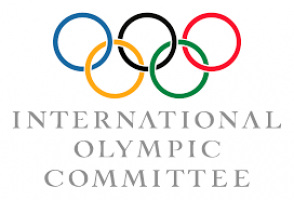
International Olympic Committee
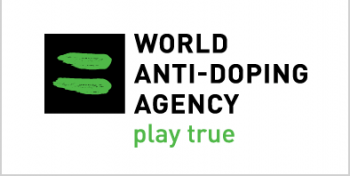
World Anti-Doping Agency
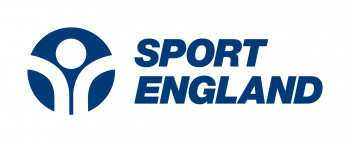
Sport England
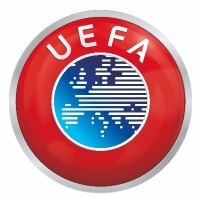
Union of European Football Assocs.
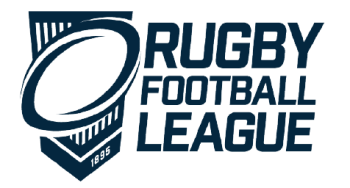
Rugby Football League
Our research team
-
View our staff
- Prof Jon Grix
- Prof Yuhei Inoue
- Prof Larissa Davies
- Dr Paul Widdop
- Dr Nicolas Scelles
- Dr Paul Brannagan
- Dr Qi Peng
- Dr Maurizio Valenti
- Dr Lorraine Bedwell
- Dr Dom Conricode
- Dr Seth Perkin
- Dr Harish Kumar
- Dr Marianna Pavan
- Dr Swarali Patil
- Dr Ryuta Yoda
- Dr Alessio Norrito
- Dr Anne Thompson
- Mike Griffiths
- Billy Fleury
- Dr Abdullah Faruq
Contacts
Contact us
You can contact individual members of the team through their staff profiles.
For general enquiries, please contact our research group lead Prof Jonathan Grix.


